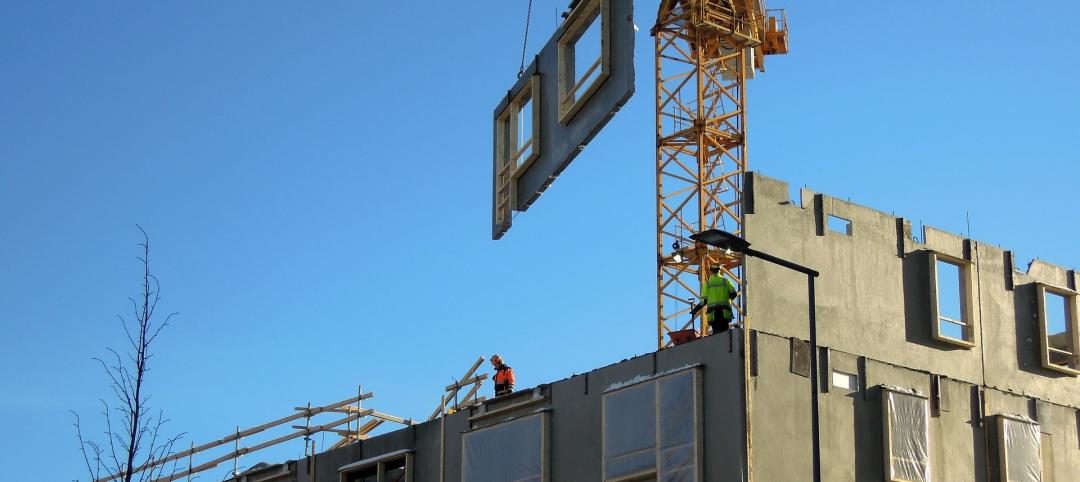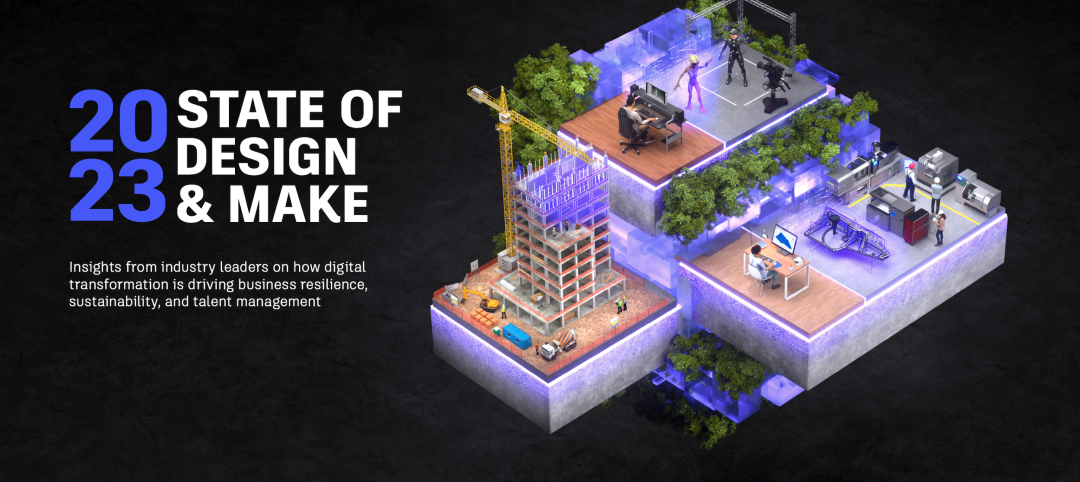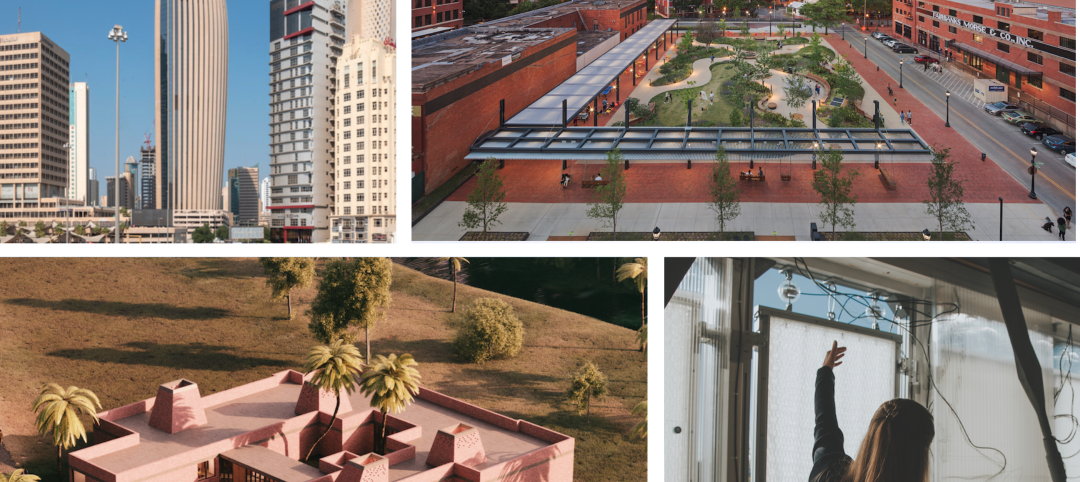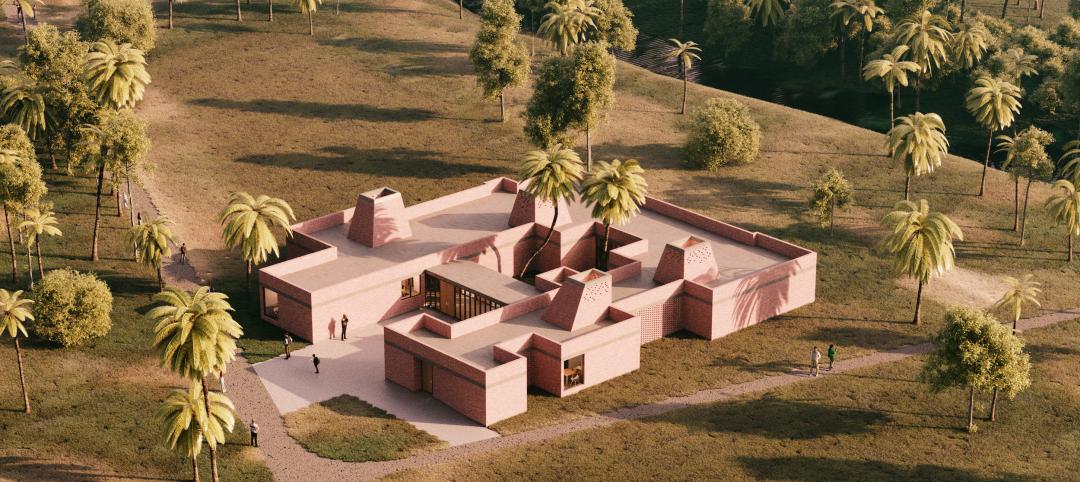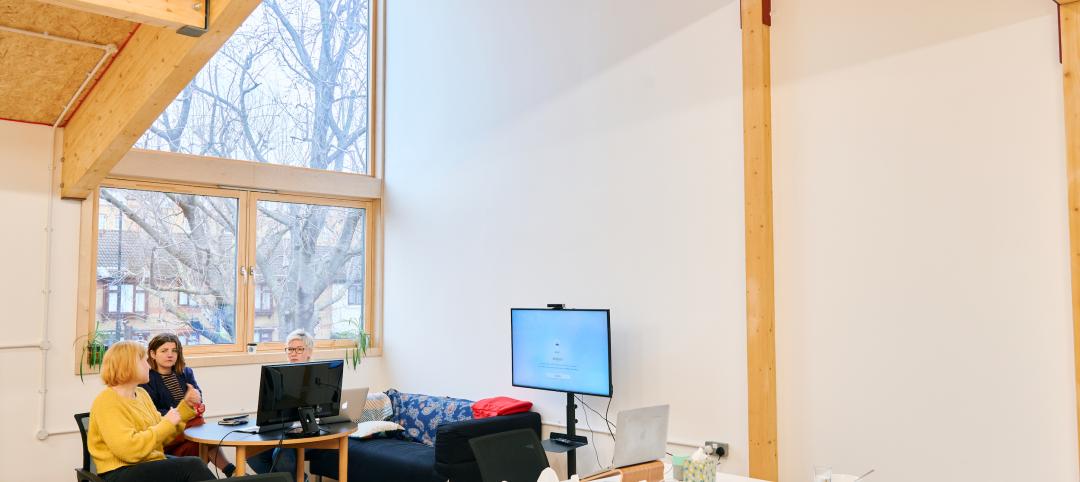Innovation “means solving problems,” says Burcin Kaplanoglu, PhD, Executive Director and Innovation Officer with Oracle, and Co-founder of the Oracle Construction and Engineering Innovation Lab in Deerfield, Ill. The 20,000-sf lab opened in the fall of 2018, and has hosted more than 500 guests, 80% of whom were operations personnel.
Just as Oracle uses its research labs to test prototype technologies, the purpose of its innovation lab is to try out ways to identify pain points and improve the industrial process.
“The digital and physical worlds are blurring, and construction is not that different. We focus on solutions, and how they can be scaled,” says Kaplanoglu, a former Lendlease executive and a teacher at Northwestern University’s McCormick School of Engineering.
SEE ALSO: Structural engineer speeds skyscraper construction with novel building core design
The lab, which went from concept to execution in only six months, replicates an actual jobsite, complete with a double-wide trailer, sensors, and location trackers. It provides visitors with an immersive experience where they can assume one of five different roles, “and walk through the day in the life of a construction worker,” says Kaplanoglu.
A short visit takes two to four hours. Other visitors might spend an entire day onsite. Some use the lab to educate their employees and subcontractors, others to test construction technologies or to share experiences with peers. “We’re creating as common collaborative environment,” says Kaplanoglu.
In the future, Kaplanoglu wants the lab to incorporate labor unions and subcontractors. And part of its mission is to diversity its user base to include insurance companies, materials manufacturers, financial institutions, as well as the underprivileged. “We’re looking to engage a larger ecosystem,” he says.
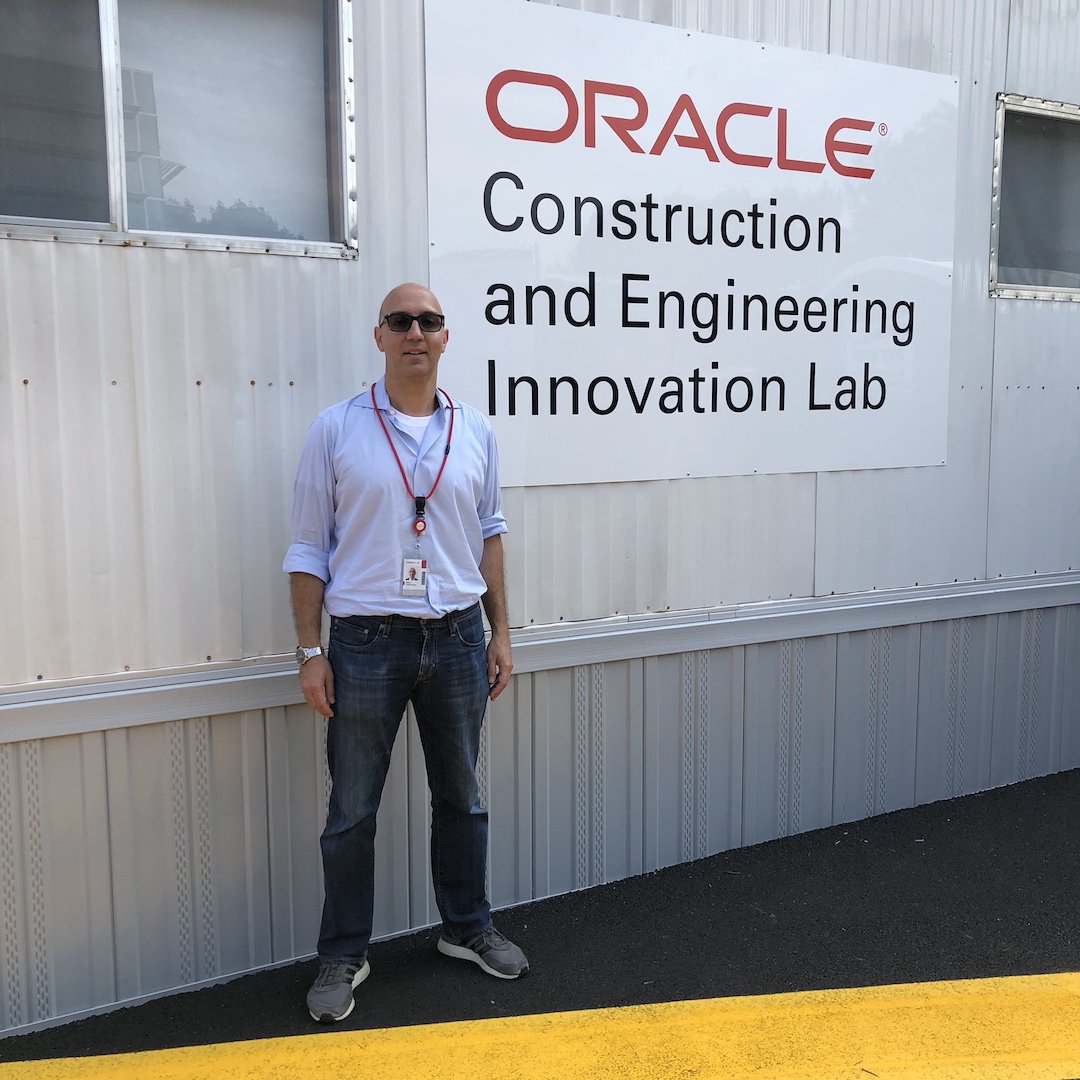 The Innovation Lab's Co-founder Burcin Kaplanolgu, PhD, foresees AI and robotics being incorporated into the lab’s experiences. Photo: Oracle
The Innovation Lab's Co-founder Burcin Kaplanolgu, PhD, foresees AI and robotics being incorporated into the lab’s experiences. Photo: Oracle
The lab’s business partners include an array of software and hardware suppliers: Assemble Systems, Bosch, Daqri, Here Technologies, Jovix, Reconstruct, Smartvid.io, and Triax.
Kaplanoglu is particularly excited about a future of construction that integrates augmented reality (“the future for displaying data,” he says) and artificial intelligence (“which relies on that data”). The advent of more sophisticated sensors and 5G networks holds out the promise of better jobsite communications with higher transmission speeds and lower latency.
He also foresees jobsites turning to robotics to supplement their workforces, initially to capture data but eventually (within the next five to 10 years) to support work onsite.
Kaplanoglu says the success of the Chicago lab has led Oracle to consider expanding this concept to other cities, and not just in the U.S.
Related Stories
Contractors | May 26, 2023
Enhanced use of data is crucial for improving construction job site safety
Executives with major construction companies say new digital tools are allowing them to use data more effectively to reduce serious safety incidents and improve job site safety.
AEC Tech Innovation | May 12, 2023
Meet Diverge, Hensel Phelps' new ConTech investment company
Thai Nguyen, Director of Innovation with Hensel Phelps, discusses the construction giant's new startup investment platform, Diverge.
Sustainability | May 1, 2023
Increased focus on sustainability is good for business and attracting employees
A recent study, 2023 State of Design & Make by software developer Autodesk, contains some interesting takeaways for the design and construction industry. Respondents to a survey of industry leaders from the architecture, engineering, construction, product design, manufacturing, and entertainment spheres strongly support the idea that improving their organization’s sustainability practices is good for business.
Design Innovation Report | Apr 27, 2023
BD+C's 2023 Design Innovation Report
Building Design+Construction’s Design Innovation Report presents projects, spaces, and initiatives—and the AEC professionals behind them—that push the boundaries of building design. This year, we feature four novel projects and one building science innovation.
AEC Tech Innovation | Apr 27, 2023
Does your firm use ChatGPT?
Is your firm having success utilizing ChatGPT (or other AI chat tools) on your building projects or as part of your business operations? If so, we want to hear from you.
Design Innovation Report | Apr 19, 2023
Reinforced concrete walls and fins stiffen and shade the National Bank of Kuwait skyscraper
When the National Bank of Kuwait first conceived its new headquarters more than a decade ago, it wanted to make a statement about passive design with a soaring tower that could withstand the extreme heat of Kuwait City, the country’s desert capital.
Design Innovation Report | Apr 19, 2023
HDR uses artificial intelligence tools to help design a vital health clinic in India
Architects from HDR worked pro bono with iKure, a technology-centric healthcare provider, to build a healthcare clinic in rural India.
Design Innovation Report | Apr 19, 2023
Meet The Hithe: A demountable building for transient startups
The Hithe, near London, is designed to be demountable and reusable. The 2,153-sf building provides 12 units of business incubator workspace for startups.
3D Printing | Apr 11, 2023
University of Michigan’s DART Laboratory unveils Shell Wall—a concrete wall that’s lightweight and freeform 3D printed
The University of Michigan’s DART Laboratory has unveiled a new product called Shell Wall—which the organization describes as the first lightweight, freeform 3D printed and structurally reinforced concrete wall. The innovative product leverages DART Laboratory’s research and development on the use of 3D-printing technology to build structures that require less concrete.
Smart Buildings | Apr 7, 2023
Carnegie Mellon University's research on advanced building sensors provokes heated controversy
A research project to test next-generation building sensors at Carnegie Mellon University provoked intense debate over the privacy implications of widespread deployment of the devices in a new 90,000-sf building. The light-switch-size devices, capable of measuring 12 types of data including motion and sound, were mounted in more than 300 locations throughout the building.



